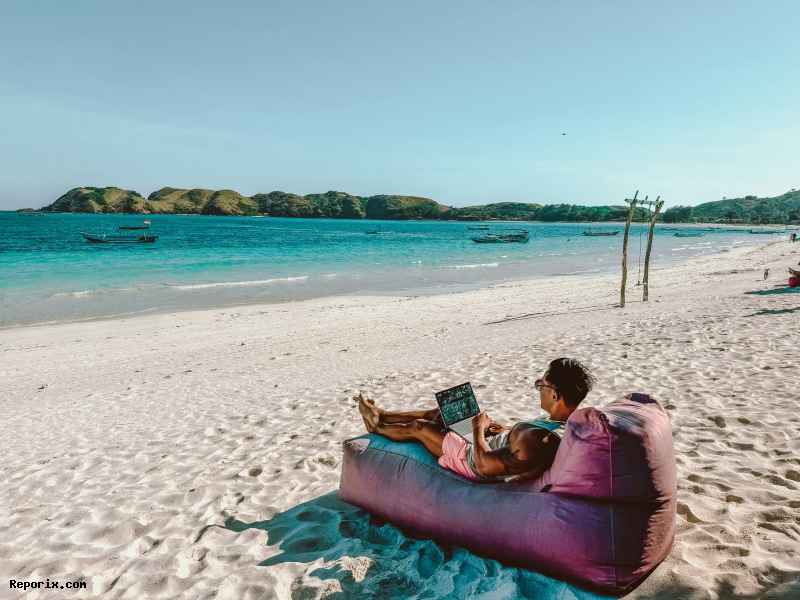The dream of location-independent work is becoming a reality for more and more people. As a digital nomad, you combine your career with travel, but how does it work in practice? Digital nomads are individuals who work online while living and traveling anywhere in the world. Whether you are a freelancer, entrepreneur, or remote employee, the main requirement is having a laptop and internet connection.
Common jobs for digital nomads include freelancing in web design, programming, or writing, running online businesses such as dropshipping, blogging, or coaching, as well as remote jobs in marketing, customer service, or IT. The nomad lifestyle offers many benefits. You can enjoy the freedom to work from places like Bali, Lisbon, or Mexico City and set your own flexible schedule without a fixed 9-to-5 routine. Additionally, living in cheaper countries allows for longer and more affordable travel experiences. On a personal level, traveling and working abroad encourages growth through exposure to new cultures, languages, and networking opportunities.
However, the lifestyle also comes with challenges. Maintaining stable internet access is essential, which can be solved by using coworking spaces or local SIM cards with sufficient data. Dealing with different time zones requires either fixed work hours or asynchronous communication. Loneliness can be overcome by joining digital nomad communities through Facebook groups or meetups. Visa and tax issues should be handled by consulting expat tax advisors and applying for appropriate remote work visas, such as Portugal’s D7 visa.
In 2024, some of the best countries for digital nomads include Portugal, with affordable living and EU visa options; Thailand, known for excellent coworking spaces; Mexico, offering a vibrant nomad community; and Bali, which combines tropical living with fast internet. Visa options vary from freelancer visas in countries like Germany and Spain to digital nomad visas offered by Portugal, Costa Rica, or Estonia. Many nomads also start with tourist visas, which typically allow 90 days of stay.
Regarding costs, monthly budgets differ by country. Thailand offers a basic budget of approximately $880 to $1,320 and a comfortable budget of $1,650 to $2,750. Portugal’s basic budget ranges between $1,320 and $1,980, while comfortable living costs rise to $2,200 to $3,300. Mexico falls somewhere in between with basic costs of $990 to $1,650 and comfortable expenses of $1,980 to $3,080. It is always advisable to keep an emergency savings buffer to cover unexpected flights or expenses.
To thrive as a digital nomad, essential tools include project management apps like Trello or Notion, communication platforms such as Slack or Zoom, and financial services like Revolut or Wise for low-cost international money transfers. Websites such as RemoteOK help find remote jobs, Workaway offers opportunities to exchange work for accommodation, and Coworker lists coworking spaces around the world.
Getting started involves securing a remote job, saving an emergency fund for three to six months of expenses, choosing your first destination (Portugal and Thailand are popular choices for beginners), packing essential equipment including a laptop, adapters, and noise-cancelling headphones, and finding a community to connect with through social media groups or local meetups.
Life as a digital nomad is not just a holiday; it demands discipline, organization, and flexibility. For those who embrace it, however, it can be one of the most rewarding lifestyle choices available. The freedom to work and explore simultaneously offers unique experiences and personal growth opportunities. Your next step is to research remote job opportunities or start building your own online business to join the growing digital nomad community.




